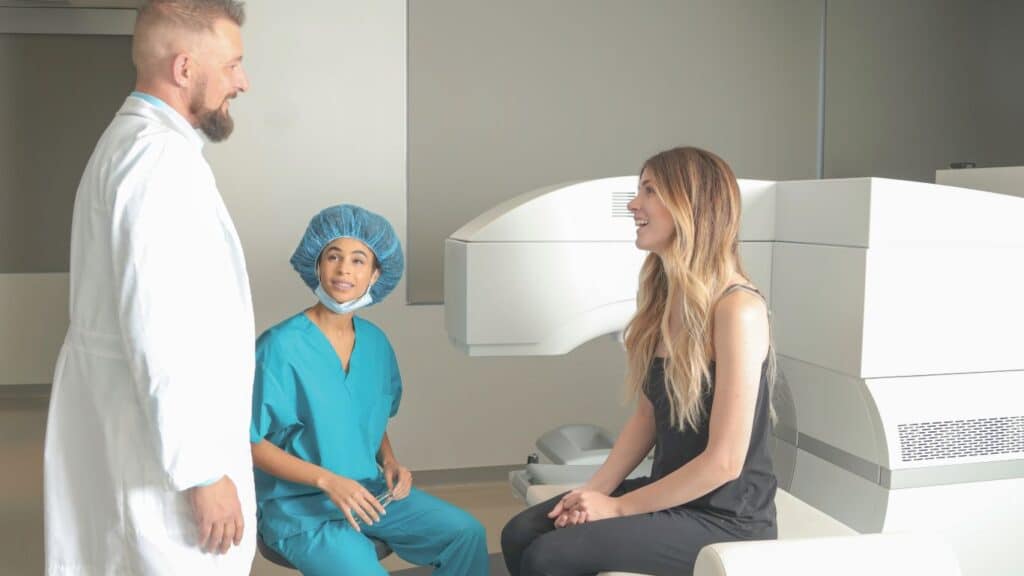LASIK surgery is a popular laser vision correction procedure that reshapes the cornea to improve eyesight, allowing many to ditch their glasses and contact lenses for good. Imagine waking up in the morning and seeing clearly without the hassle of eyewear — that's the magic of LASIK. The benefits are plentiful; people often experience a rapid recovery, minimal pain, and significantly improved visual acuity, enabling them to enjoy everyday activities without limitations. However, a crucial aspect to consider is the age at which one can safely undergo this procedure. This brings us to the question, what is the youngest recommended age for LASIK surgery?
Knowing this is essential, as age can influence both the success of the surgery and the stability of one’s vision. In this article, we will delve into that very question: what is the youngest recommended age for LASIK surgery?
LASIK, which stands for Laser-Assisted In Situ Keratomileusis, is a type of refractive eye surgery designed to correct common vision issues, such as nearsightedness, farsightedness, and astigmatism. By reshaping the cornea, the front part of the eye, LASIK helps light entering the eye focus correctly on the retina, leading to clearer vision.
The LASIK procedure typically involves three main steps:
There are many advantages of LASIK surgery:
To be considered a candidate for LASIK surgery, individuals typically must be at least 18 years old with no upper age limit. This is because younger eyes are still developing and may change significantly. Moreover, candidates should have a stable prescription for at least one year before surgery, meaning that their vision has not changed significantly during that time. This is crucial, as a fluctuating prescription can lead to poorer surgical outcomes.
Certain medical conditions can impact whether LASIK is a viable option. Individuals with autoimmune diseases, uncontrolled diabetes, or severe dry eye syndrome may be advised against the procedure. These conditions could hinder the healing process and increase the likelihood of complications. Additionally, research highlights that patients with corneal disorders like keratoconus, where the cornea becomes cone-shaped, are not suitable candidates for LASIK due to the risk of worsening vision post-surgery.
Vision stability refers to the consistency of an individual's eyesight over a specific period. For LASIK candidates, having a stable prescription means that their visual acuity has not changed for at least one year before the surgery. This consistency is vital for ensuring that the cornea can be reshaped accurately, promoting optimal outcomes for the procedure.
Several factors can influence vision stability, including
For example, teenagers and young adults may experience fluctuations in vision due to hormonal changes, while those undergoing significant life stressors might also notice shifts in their eyesight. Moreover, eye conditions, such as myopia or hyperopia, can evolve with time, making it essential for candidates to maintain regular eye exams to monitor any changes closely.
During adolescence, many individuals experience significant changes in their eyesight. This period, often marked by rapid growth and development, can lead to fluctuations in refractive errors, such as myopia or hyperopia. According to the American Academy of Ophthalmology, many teens experience vision changes during this time, primarily as a result of hormonal shifts and increased screen time, which can strain the eyes. Regular eye examinations are essential to track any changes in prescription, as untreated issues can affect school performance and overall quality of life.
Hormonal fluctuations can significantly affect vision throughout both adolescence and early adulthood. The onset of puberty triggers a cascade of hormonal changes that can influence not only physical development but also eye health.
For instance, increased levels of hormones such as progesterone can impact the shape and thickness of the cornea, leading to temporary shifts in vision. This effect can be particularly pronounced in women during hormonal cycles or pregnancy, where changes in vision stability may occur. Understanding how these factors influence eyesight is crucial for individuals considering LASIK, as hormonal changes can lead to temporary vision instability that complicates eligibility for the procedure.
At Texas Vision and Laser Center, our goal is to help you achieve optimal vision and improve your quality of life through LASIK surgery. Our experienced surgeons use state-of-the-art technology to ensure safety, precision, and excellent visual outcomes for all our patients. We also offer comprehensive pre-and post-operative care to support each individual's unique needs.
Ready to see the world with new eyes? Contact us today to schedule a consultation and learn more about how LASIK eye surgery can benefit you.
Book Your Consultation Today & See The World Clearly!
As we navigate the considerations around laser eye surgery, it's important to discuss the potential risks, especially for younger patients. Understanding these risks can help candidates make more informed choices about their vision correction options.
While LASIK is generally regarded as a safe and effective procedure, complications can still occur, particularly in younger patients whose eyes may not be fully mature. Some individuals may experience issues like dry eyes, halos, or glare post-surgery, which can be more pronounced in younger patients due to ongoing changes in their eye structure.
One significant concern with undergoing LASIK at a young age is the potential for vision changes after the procedure. As mentioned earlier, hormonal fluctuations and lifestyle factors can lead to ongoing refractive changes. This can result in individuals requiring enhancements or corrective procedures, which are more common among younger patients, who may see some progression in their vision even after surgery.
Before diving into the technical aspects, it's essential to recognize that proper preparation is key when considering LASIK surgery, especially for younger adults. A few critical pre-surgery considerations can help ensure a safe and successful outcome.
A thorough eye examination is a vital first step in the LASIK process. This evaluation assesses various factors, including refractive errors, corneal thickness, and overall eye health. It involves using advanced diagnostic tools to create a detailed profile of the patient's vision. Such an examination not only aids surgeons in determining if LASIK is the right choice but also helps identify any underlying conditions that could affect surgery outcomes.
Understanding your vision stability is crucial when contemplating LASIK. This means evaluating how consistent your vision has been over time. Those who experience frequent changes are generally advised to wait before proceeding with surgery.
Lastly, reviewing your medical history is an essential pre-surgery consideration. Conditions such as autoimmune diseases, diabetes, or previous eye surgeries can impact the eligibility and success of LASIK. An open dialogue with your surgeon about your medical background ensures tailored recommendations and reduces the risk of unexpected complications. By carefully assessing these factors, young adults can approach LASIK with a clearer understanding of the benefits and potential risks.
When considering LASIK surgery, it’s crucial to reflect not just on the physical aspects but also on the psychological and emotional readiness necessary for such a significant decision. Making informed choices can heavily influence the overall experience and outcomes of the procedure.
Deciding to undergo LASIK is not merely a choice based on convenience; it demands a level of maturity that entails understanding the long-term implications of the surgery. Younger individuals may struggle with the weight of this decision, as their understanding of the potential consequences may not yet be fully developed. Maturity plays a pivotal role in weighing the risks and rewards, as those who take the time to consider their options thoroughly are often more satisfied with their decision.
The psychological ramifications of LASIK can be profound. Many individuals experience anxiety before the procedure due to the fear of complications or dissatisfaction with the results. Post-surgery, patients may grapple with adjusting to changes in their vision. Candidates need to prepare mentally, embracing tools such as counseling or discussions with previous LASIK patients. This proactive approach helps in managing expectations, leading to a more positive experience overall.
Emotional readiness is equally important when considering laser eye surgery. Candidates should evaluate their motivations for undergoing the procedure and assess their emotional state. The desire for immediate results can sometimes overshadow the need for patience during the recovery phase. It’s crucial to develop emotional resilience, as this can help mitigate stress and disappointment during the healing process. Engaging in supportive conversations with peers, family, or professionals can foster a healthier emotional outlook, ensuring that candidates are mentally equipped to navigate the ups and downs of their LASIK journey.
So, what is the youngest recommended age for LASIK surgery? Generally, most surgeons suggest waiting until at least 18 years of age when the eyes are more likely to have stabilized. However, every individual is different, so a personal evaluation is critical.
If you’re considering LASIK our cataract surgery and have questions about your eligibility, our expert team at TVLC is here to help. Don’t hesitate—book your consultation today to take the first step towards clearer vision!



